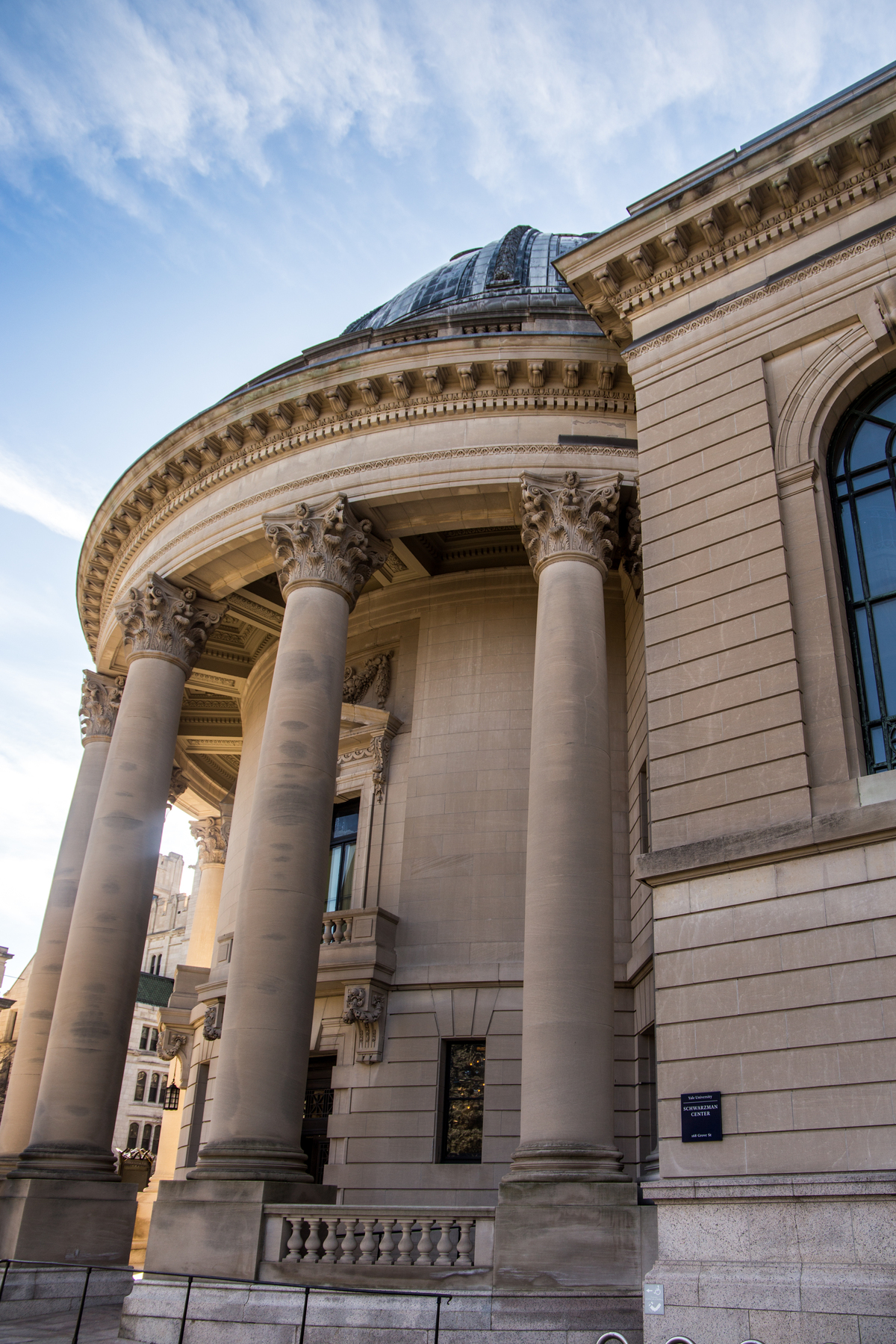University kicks off ambitious $7 billion fundraising campaign
Acapella group Pentatonix helps Yale launch capital campaign

Lucas Holter, Contributing Photographer
On Saturday afternoon, the University publicly launched a capital campaign entitled “For Humanity” with the goal of raising $7 billion to support a variety of scientific and leadership efforts.
The event, which was staged in the Schwarzman Center and broadcasted virtually, included speeches from University President Peter Salovey, the campaign’s five co-chairs and students from the David Geffen School of Drama and Yale College. The speakers discussed the importance of the new fundraising campaign for the University’s future and spreading the impact of its research. According to the campaign’s website, it has four key pillars: arts and humanities, scientific research, leadership cultivation and interdisciplinary collaboration.
“This day has been long in coming and I can’t be happier that it has arrived,” Salovey said in his opening remarks. “Today, we are writing our chapter of Yale’s history and the question we must ask ourselves today is what is Yale for? … Yale today is extraordinary and investing in Yale’s future will pay major dividends, not only for Yale but for humanity.”
The campaign has specific focuses in the sciences, as well as broader focuses for the campus community. The campaign’s five specific areas of focus within the sciences and engineering include data science and computer science, neuroscience, inflammation science, planetary solutions and quantum science and engineering. Yale also plans to invest in social science research, furthering the University’s preeminence in the humanities, supporting faculty and students and building a more inclusive campus community, Salovey said in a previous conversation with the News.
The campaign’s silent phase, in which the University solicits donations from a small group of wealthy alumni, began in July 2018 and has already raised $3.5 billion — half of the campaign’s targeted value. The silent phase raised nearly as much as the last capital campaign, which lasted from 2006 to 2011, raised in total.
Donna Dubinsky ’77, one of the five co-chairs of the campaign, announced the $7 billion goal, noting that it is Yale’s largest-ever capital campaign — double the goal of the previous fundraising push — and “one of the biggest campaign goals of peer institutions.”
In his opening speech on Saturday, Salovey appealed to history to illustrate the importance of the investments. He reflected on the University 100 years ago, in the fall of 1921, when students were arriving on campus in the wake of the First World War and Yale was similarly at a turning point.
“[Arriving students] experienced firsthand how Yale answers when world events call on it to contribute to the advancement of humanity,” Salovey said. “From those uncertain days of fall 1921, Yale went on to expand its contributions profoundly.”
Continuing his nod to history, Salovey spoke about the School of Nursing, established in 1923. “Today the school and its graduates are fighting for our lives,” he said. Sterling Memorial Library and the residential college system, “foundational to the Yale experience,” as Salovey put it, were also constructed during those years.
“Each of us has a role to play in this campaign.” Salovey said. “Each of us must answer the question I posed earlier: What are we for? In 100 years, when people look back to this moment, what will be our legacy?”
Following Salovey’s speech, a number of faculty members as well as undergraduate and graduate students spoke about the ways in which the campaign will help them advance their work.
In particular, the event highlighted research on dark matter, cancer and childhood mental development. The event also reflected on the University’s response to the pandemic as an example of both the community at Yale and the important scientific research that Yalies did throughout the pandemic.
“While the world was kept apart, Yale came together,” a narrated voice said in one of the event’s pre-recorded videos. “At the onset of the COVID-19 pandemic, staff and faculty devised solutions to protect the health of the campus community while fulfilling the University’s academic mission.”
After an hour of speeches and promotional videos, attendees were invited to attend virtual panels featuring faculty members and University-affiliates, who spoke further about the campaign’s various goals. The event ended with a virtual performance by Pentatonix, a famed five-person acapella group.
Summing up the campaign, Josh Bekenstein ’80, the Yale Corporation’s senior trustee and co-chair of the capital campaign, spoke to the role Yale must play in finding solutions to global issues.
“We are facing urgent existential challenges from climate change to global health crises,” he said. “Yale has the ability and responsibility to address these and other challenges through fundamental research and scientific inquiry that can lead to breakthroughs and solutions. Bold discoveries require bold investment.”
Dubinsky echoed this sentiment, saying that the campaign is not about giving to Yale “for Yale’s sake.”
“The point of this campaign is to make change in the world,” Dubinsky said. “The faculty, the students and staff [are] here to do important work and to become the next generation of leaders and we are here to enable that work.”
Harvard University’s most recent capital campaign set a smaller goal of $6.5 billion, and ended the campaign having raised more than $9.6 billion.







